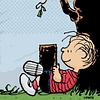Take a photo of a barcode or cover
challenging
emotional
informative
inspiring
sad
medium-paced
A bit more of a downer than the first book, but with the title I was expecting that. Lots of fascinating tidbits of history told with such personal touches it is hard not to become so fond of the characters that the reader doesn't want the stories to end. I am looking forward to the third and final book.
Unlike the first Call the Midwife book, this one had just 3 main storylines. They were not directly related to midwifery, either (other than that the writer experienced them during the time she was a midwife). It was slower-paced than the first book, too. There were still some fascinating insights into East London life in the 1950s.
I didn’t enjoy this one as much as the first book but still interesting.
Är besviken på denna boken. Den handlar inte alls om hur det är att vara barnmorska under 50talet som den första boken gjorde. Men har en bra historia som Jennifer Worth har upplevt.
emotional
informative
inspiring
medium-paced
I enjoyed the first one better, but only because the stories in book two are so sad! Looking forward to finishing up with book three soon.
Having recently enjoyed Call The Midwife, it left me craving a bit more depth and what happened next? to each of the people mentioned. This book addresses that by focusing on 3 things - rather than dipping in and out of many peoples stories - with much more detail, brilliant! We follow the heart breaking story of siblings Frank & Peggy, find out a bit more about Sister Monica Joan and meet the wonderful Jospeh Collett (I’m so jealous of the friendship Jennifer was able to strike up with him, I would have dearly loved to do the same). The only trouble is, I didn’t believe the stories were actually true. I felt this book was as made up. And I don’t know why, as I enjoyed it a lot. Maybe it’s just because it flowed so well? The narrative was very engaging, entertaining, heartbreaking, fascinating and educating. For instance, who knew workhouses still existed until the 1930s (and beyond really as the book explained)? I always pictured them as a Victorian 1800s problem. On a personal note of interest, I love hearing about nursing in the 1950s as that when both my grandmother and mother-in-law (yes they are the same age) trained as nurses. I’m looking forward to see what the next instalment in this series has in store for me - just waiting for its delivery.
emotional
hopeful
informative
inspiring
reflective
sad
slow-paced
I didn't find this as good as the first book in the series. Perhaps that's because it only tells three stories and two of them, the stories of the workhouse children Jane, Frank and Peggy, and the story of the old soldier Joe Collett, are stories that the author was told, rather than things she experienced herself. This book lacked the immediacy of the first. But it's still an interesting and moving read, and a great argument for the National Health and the Welfare State.


